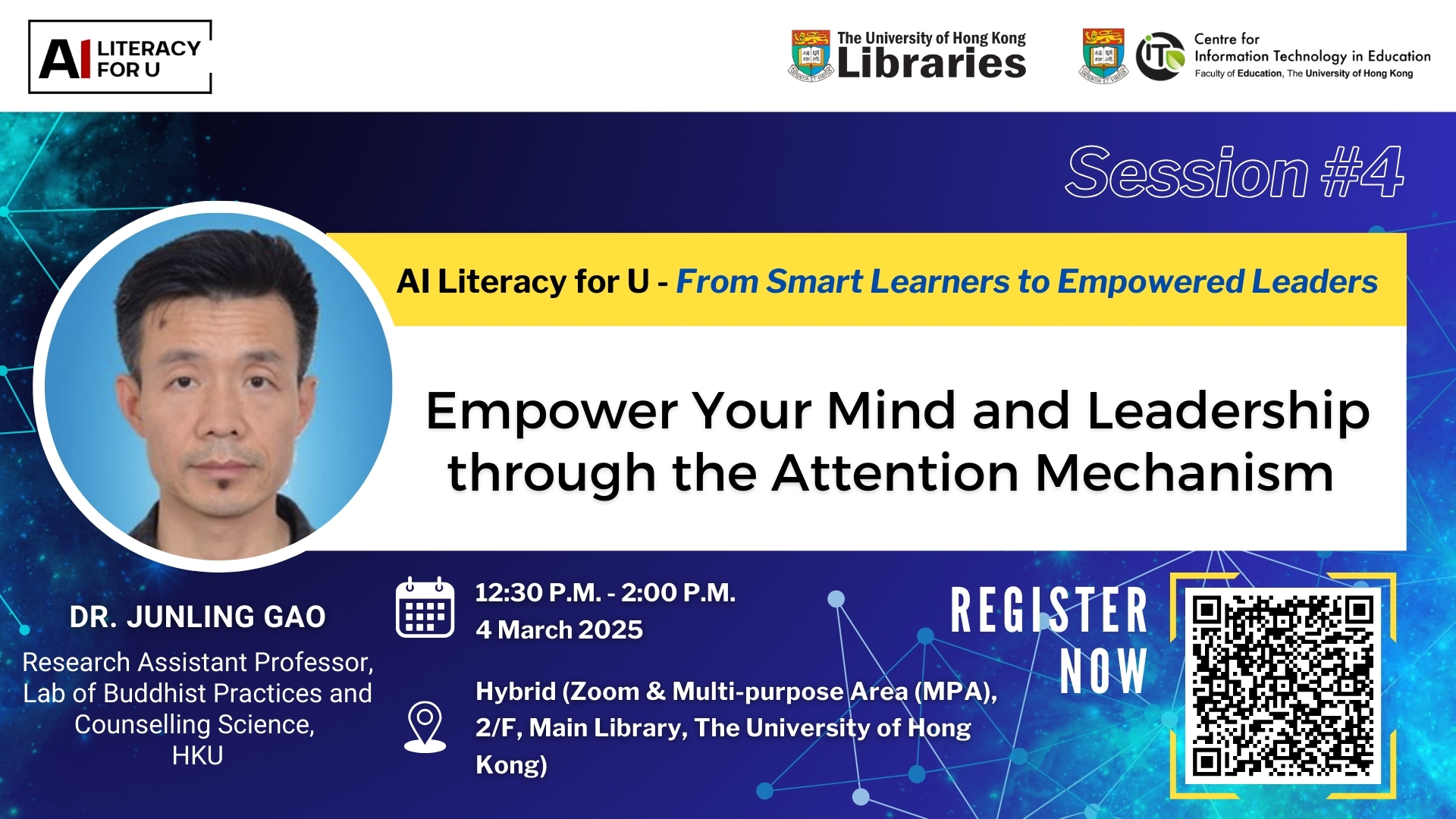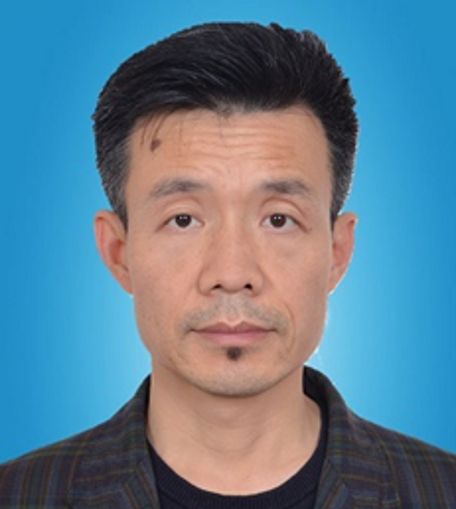
Empower Your Mind and Leadership through the Attention Mechanism
By Dr Junling GAO, Research Assistant Professor, Lab of Buddhist Practices and Counselling Science, HKU
Abstract
In this innovative presentation, Dr. Gao explores how attention science bridges artificial intelligence, human cognition, and societal evolution. The talk reveals how these mechanisms form the cognitive infrastructure for a next-level civilization by analyzing transformer algorithms in AI and neural networks in human attention. Through interactive demonstrations like the Mind-Control UFO brain-computer interface and focused meditation exercises, participants will explore how intentional attention cultivation enables humanity to transcend reactive thinking and adopt collaborative frameworks for complex techno-social systems. This session synthesizes neuroscience, AI, and contemplative traditions to propose pathways where refined attention becomes the bedrock of advanced civilizations—empowering societies to ethically steward emerging technologies while fostering collective intelligence beyond zero-sum paradigms.
After completing this session, learners will be able to:
- Understand the fundamental principles of attention mechanisms across AI systems, human cognition, and meditation contexts.
- Apply meditation and focus techniques to enhance personal and team attention management.
- Develop strategies for implementing attention-based leadership approaches in organizational settings that support the next level of civilization.
About the Speaker

Dr. Gao Junling
Research Assistant Professor, Lab of Buddhist Practices and Counselling Science, HKU
Dr. Gao Junling is a Research Assistant Professor at the Lab of Buddhist Practices and Counselling Science. A neurologist and meditation scientist, his pioneering work uses brain imaging to decode attention’s role in human-AI symbiosis. By merging ancient contemplative practices with modern computational neuroscience, Dr. Gao’s research lays groundwork for civilizations where heightened mental stability enables ethical adoption of exponential technologies. His studies on neural correlates of focus provide critical insights into building cognitive resilience—a prerequisite for societies to sustainably harness advanced tools like brain-computer interfaces and AI systems without compromising human agency.





